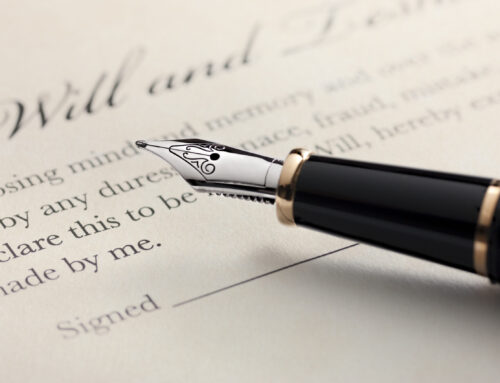If you have asked to be the executor of a will, it is important to understand what your duties will be. It is an important, responsible role where you will be trusted to ensure that the wishes of the deceased are adhered to. Here is everything you need to know about your executor of will duties.
What Is An Executor?
Let’s start with the basics – an executor is legally responsible for making sure that a person’s estate is properly distributed when they die, and carrying out all of the instructions in the will. Every will must have an executor named, but it is possible (and usually recommended) to have more than one executor, in case there is a change of circumstances. Often an executor will be the next of kin, or a professional such as a solicitor.
What Are The Executor Of Will Duties?
An executor has many duties. It can take a lot of time and work to carry these duties out, particularly during a difficult period. Although they can seem daunting, there is plenty of help and guidance available. Here are the main duties:
- Getting Copies Of The Will
One of the first jobs that an executor must do is locate the will and make copies for any other executors and the beneficiaries of the will. The will will explain exactly how the estate should be distributed.
- Arranging The Funeral
It is the responsibility of the executors to ensure that any instructions about how the funeral should be carried out are followed. It is perfectly reasonable to ask friends and family for support with this, as long as the wishes are followed.
- Valuing The Estate
This is a very important duty which involves working out the value of any property possessions and money, minus any debts. It is recommended that any items worth more than £500 are valued professionally, so that everything is as accurate as possible.
- Applying For Probate And Distributing The Estate
Before you can begin transferring the assets to the beneficiaries listed in the will, you need to have been granted probate. When this has been approved, you can distribute the estate according to the will and sort out the payment of any inheritance tax.
Agreeing To Be An Executor…
Being the executor of a will is a difficult task, and it is natural to be unsure about whether or not to accept. However, it is also very rewarding and there is help and support available for every stage of the process. When you are asked to be an executor, you can suggest that a professional executor (such as a solicitor) is also named as an executor. They will be able to steer you through anything you are unsure of. If you are named as a sole executor, you can always approach a solicitor for help at any stage. It is particularly common for a solicitor to be instructed to help with the probate application process. If you require any assistance, Beeston Shenton’s Wills and Probate Team is here to help. You can contact us here.




